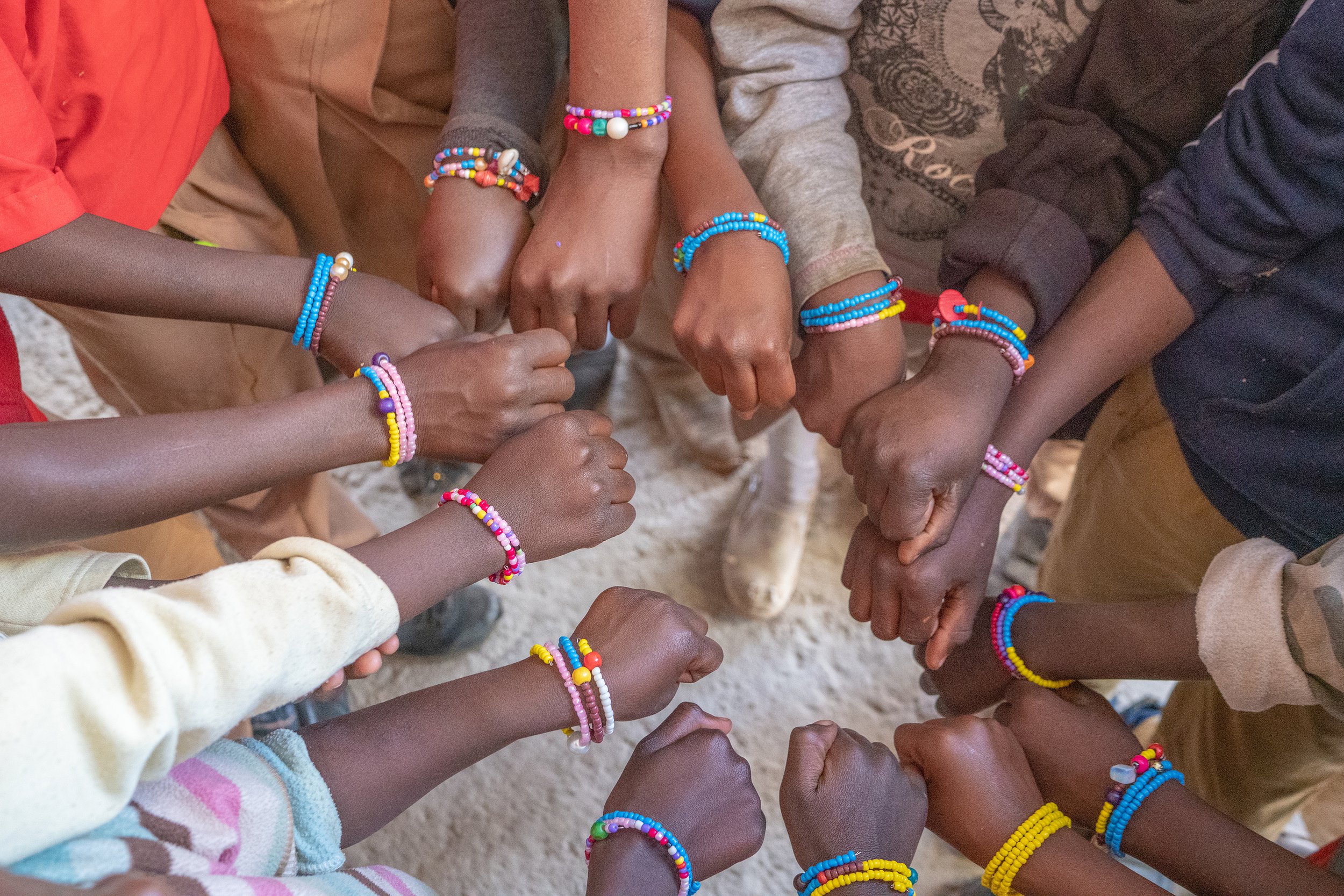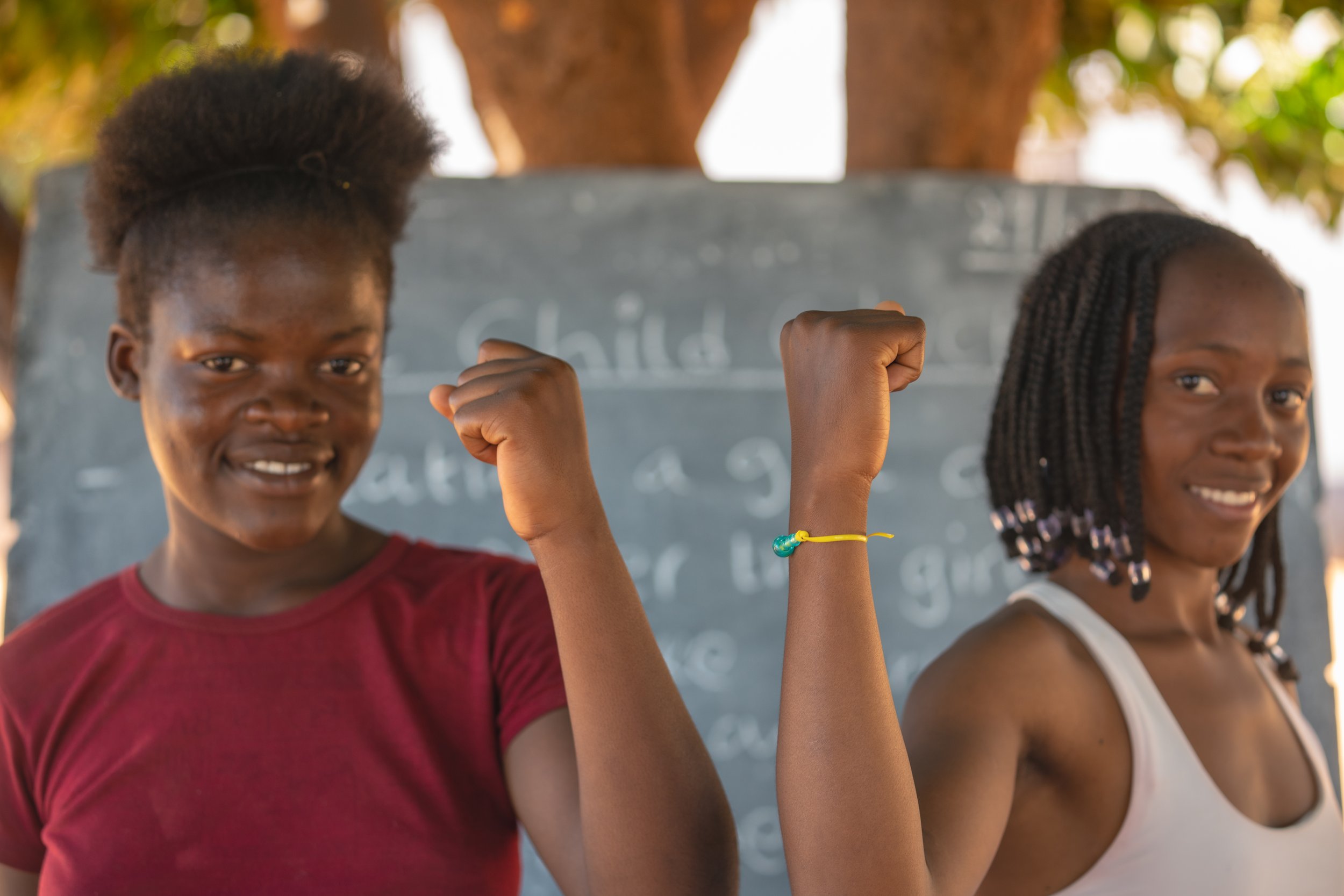WORDS AND IMAGES BY CHARLOTTE PRAGNELL
EDITED BY NINA KONJINI

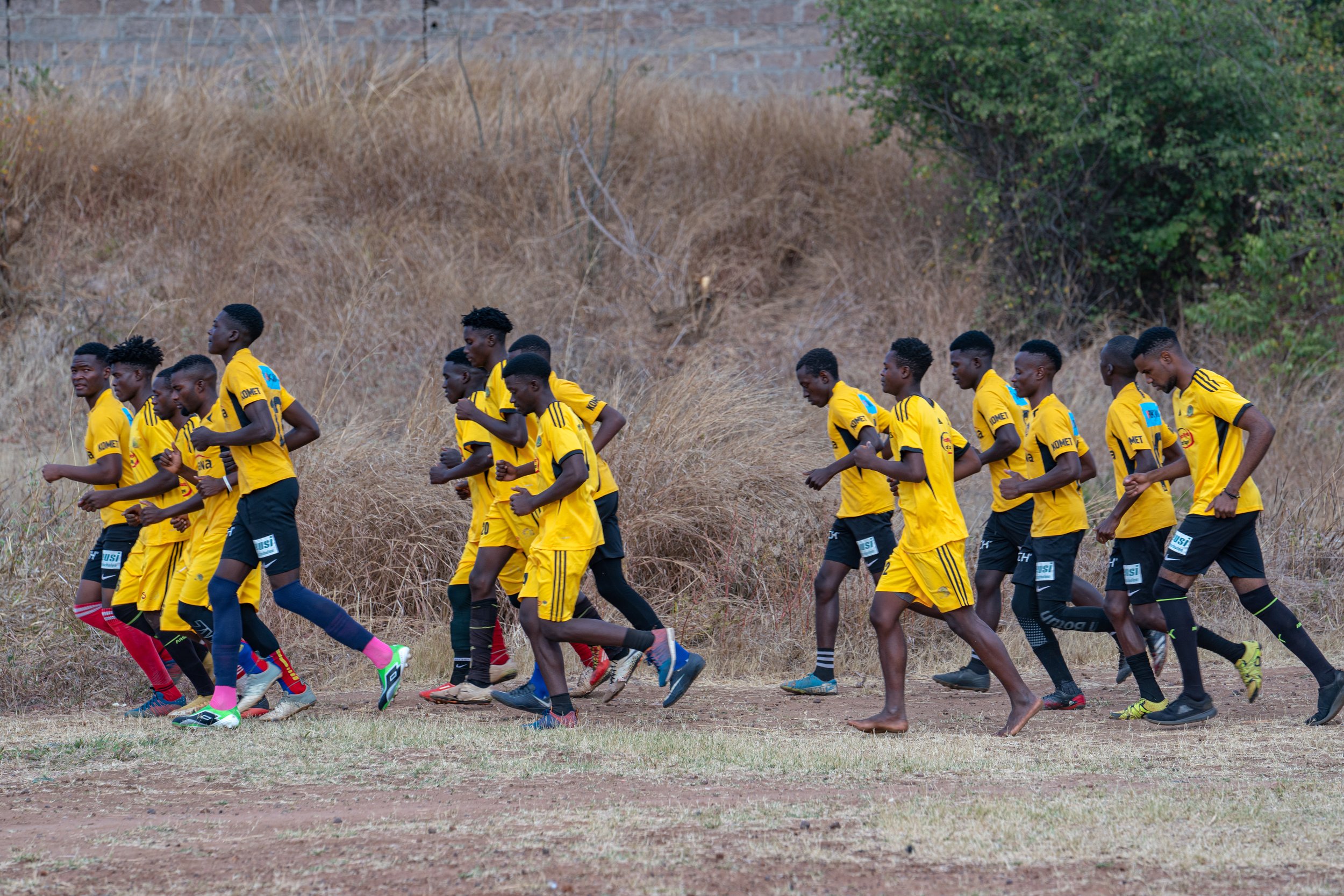



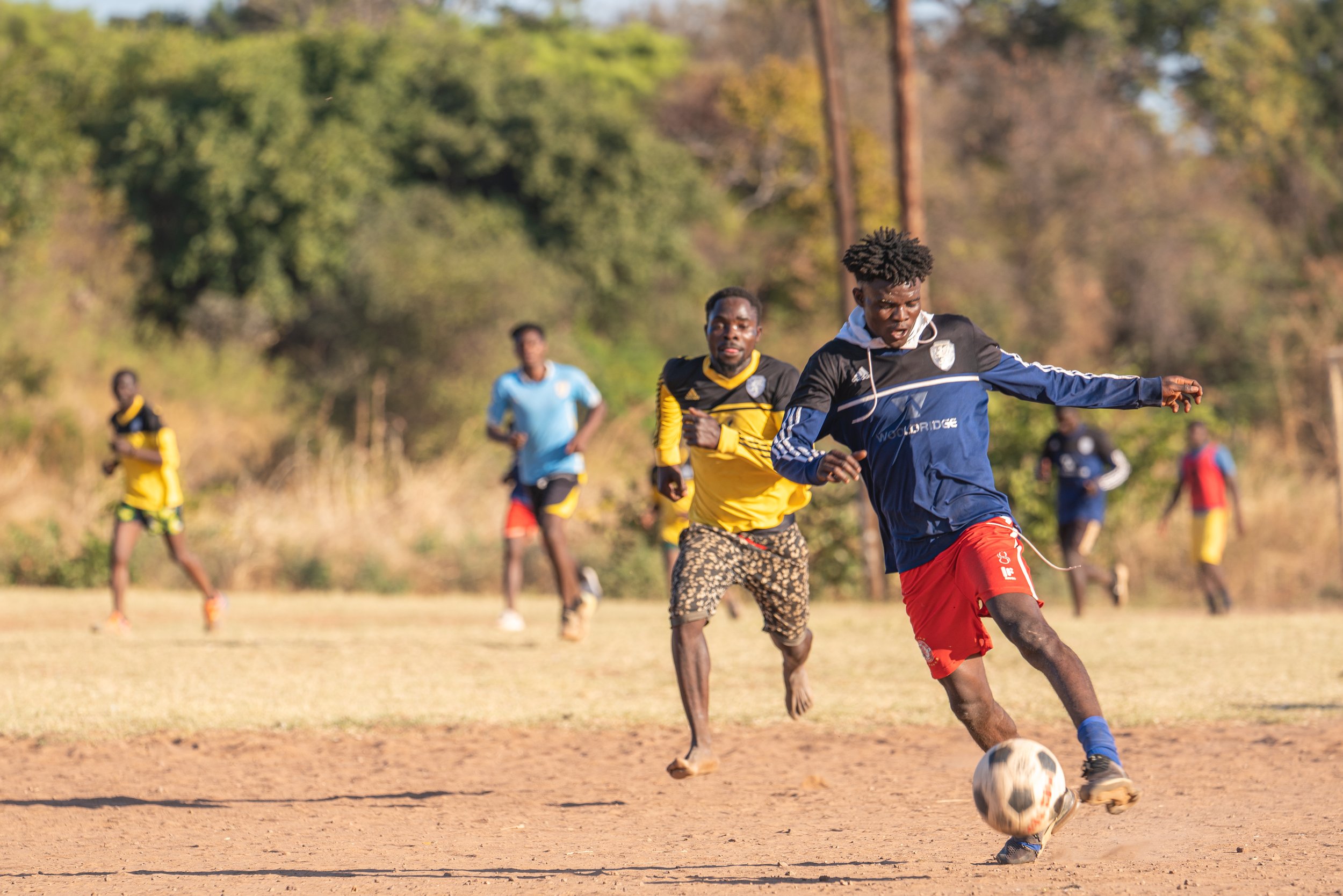
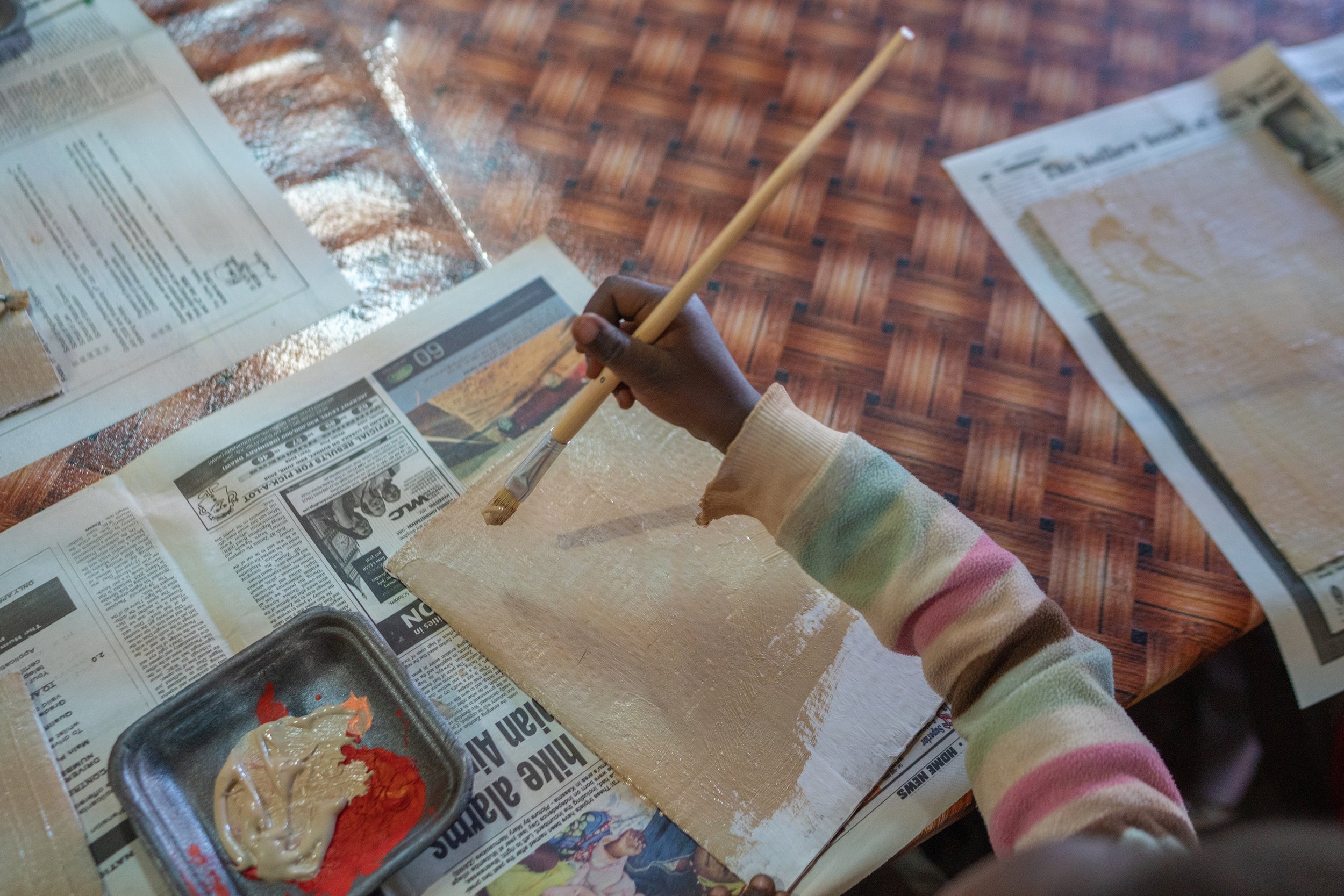
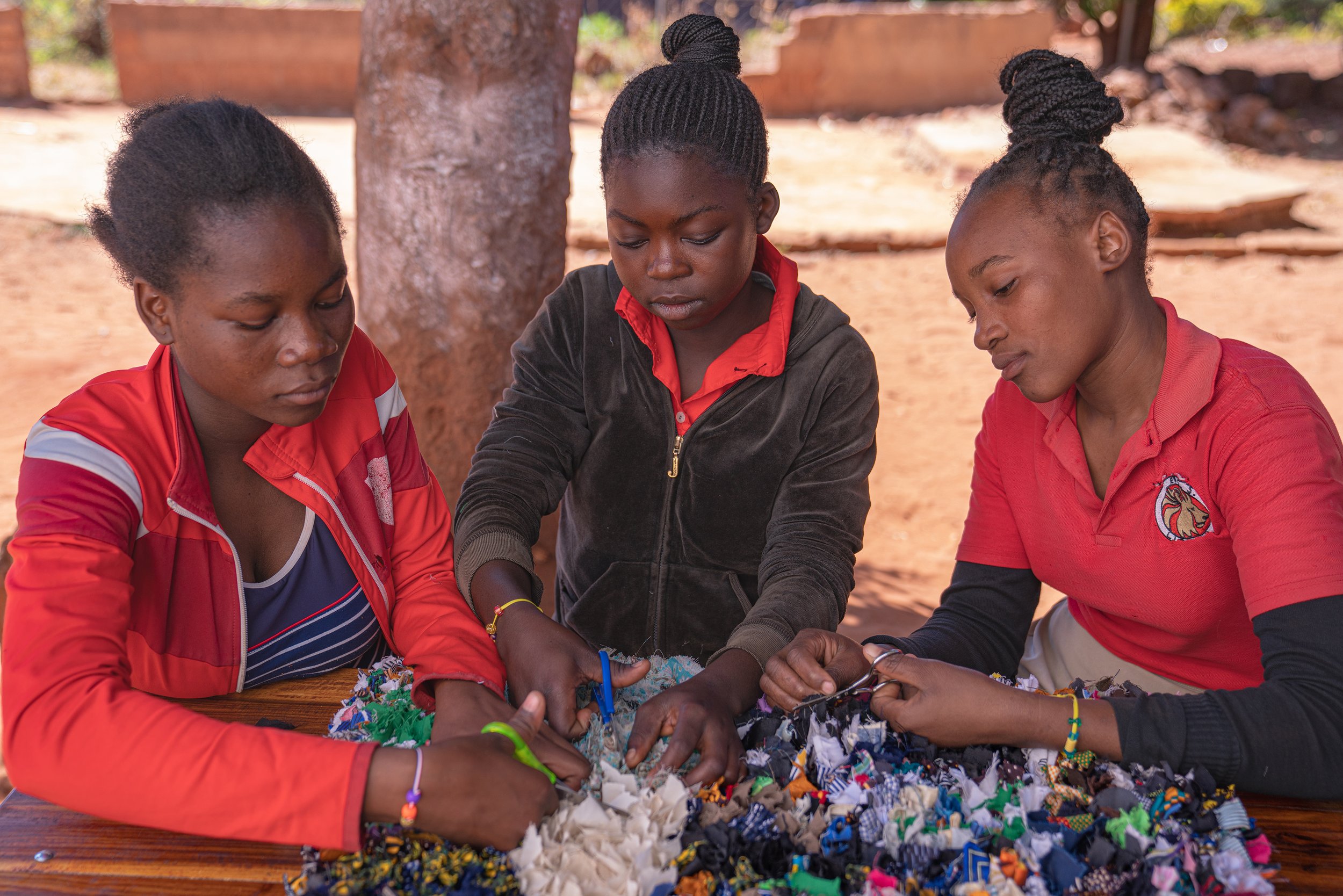
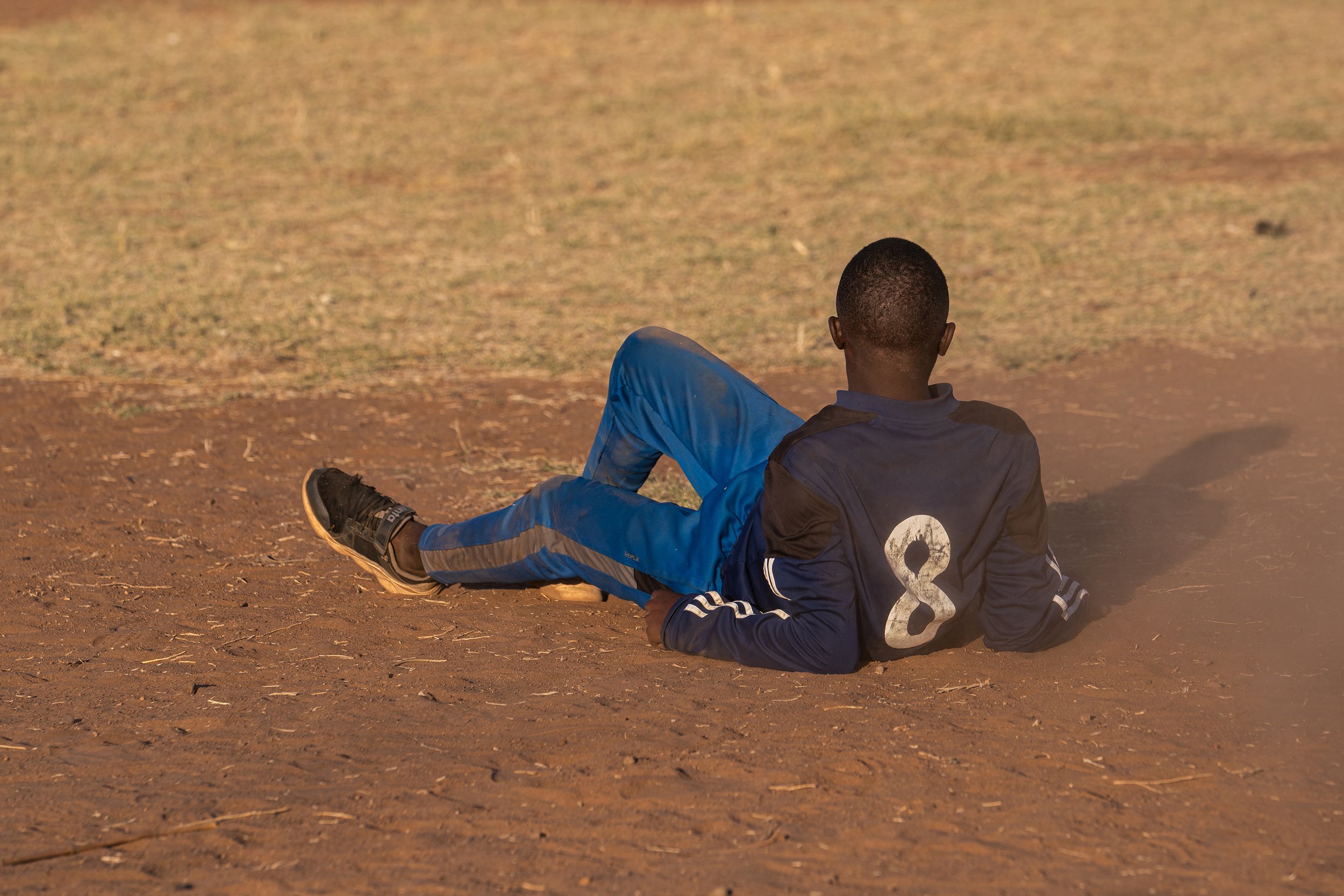

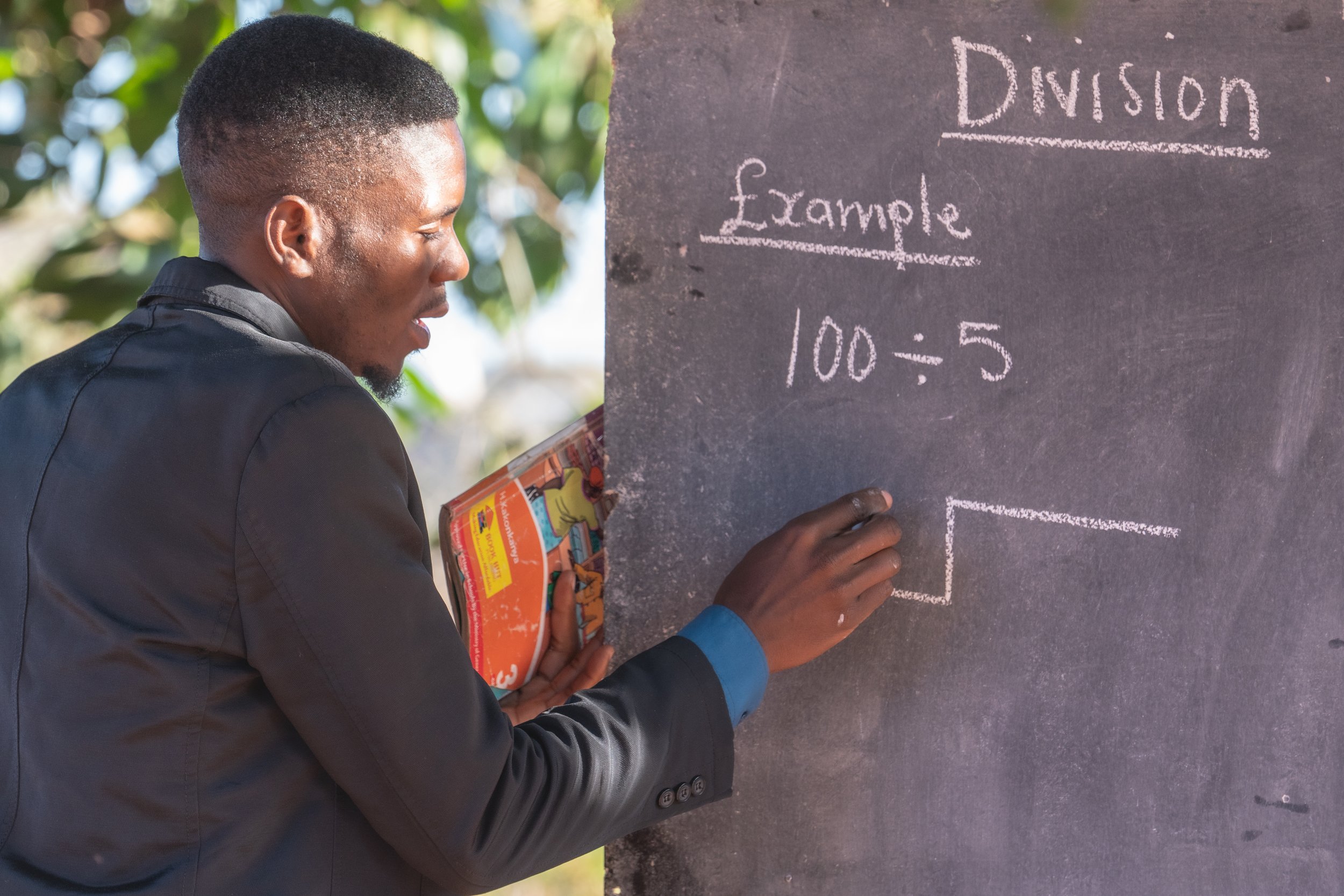
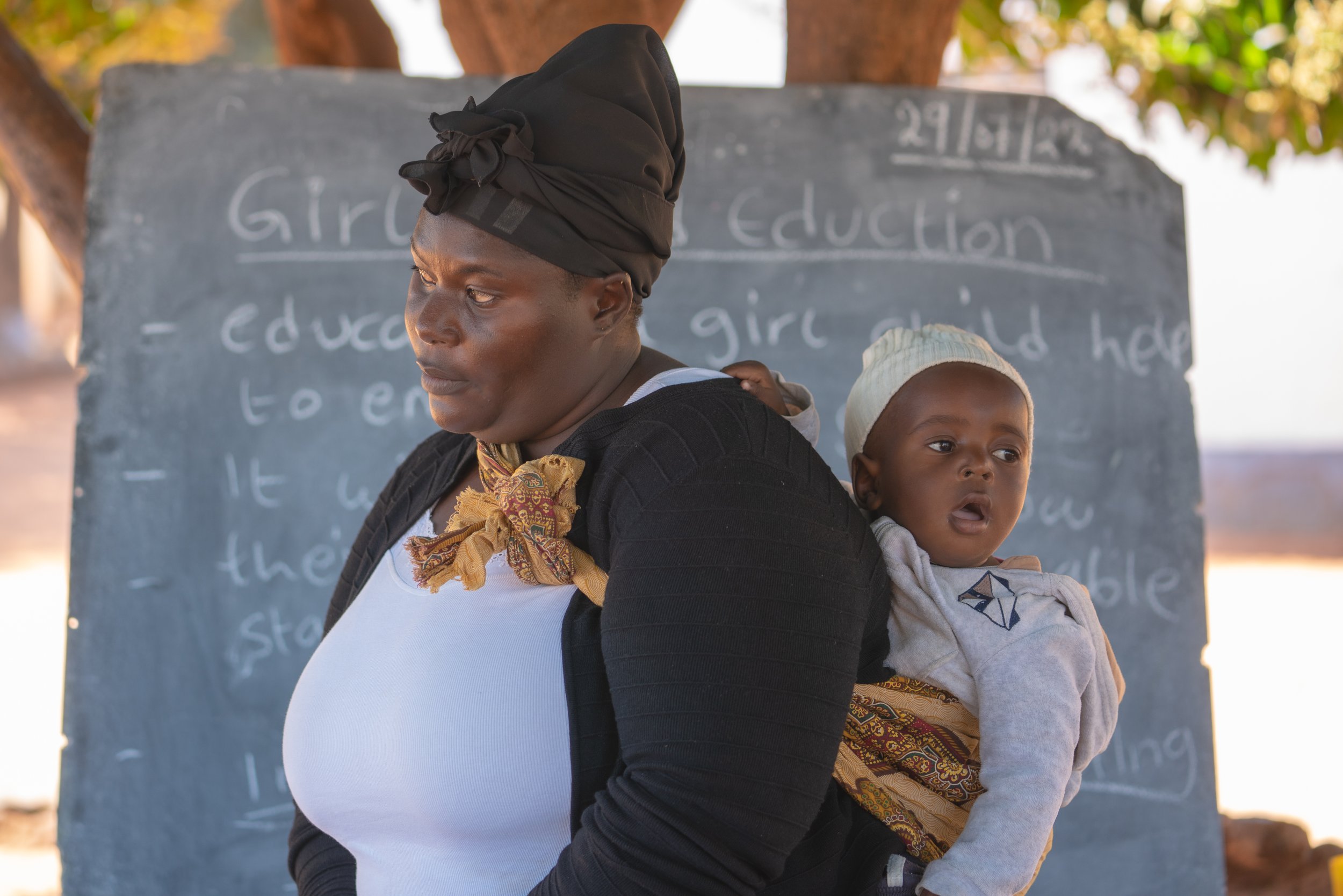
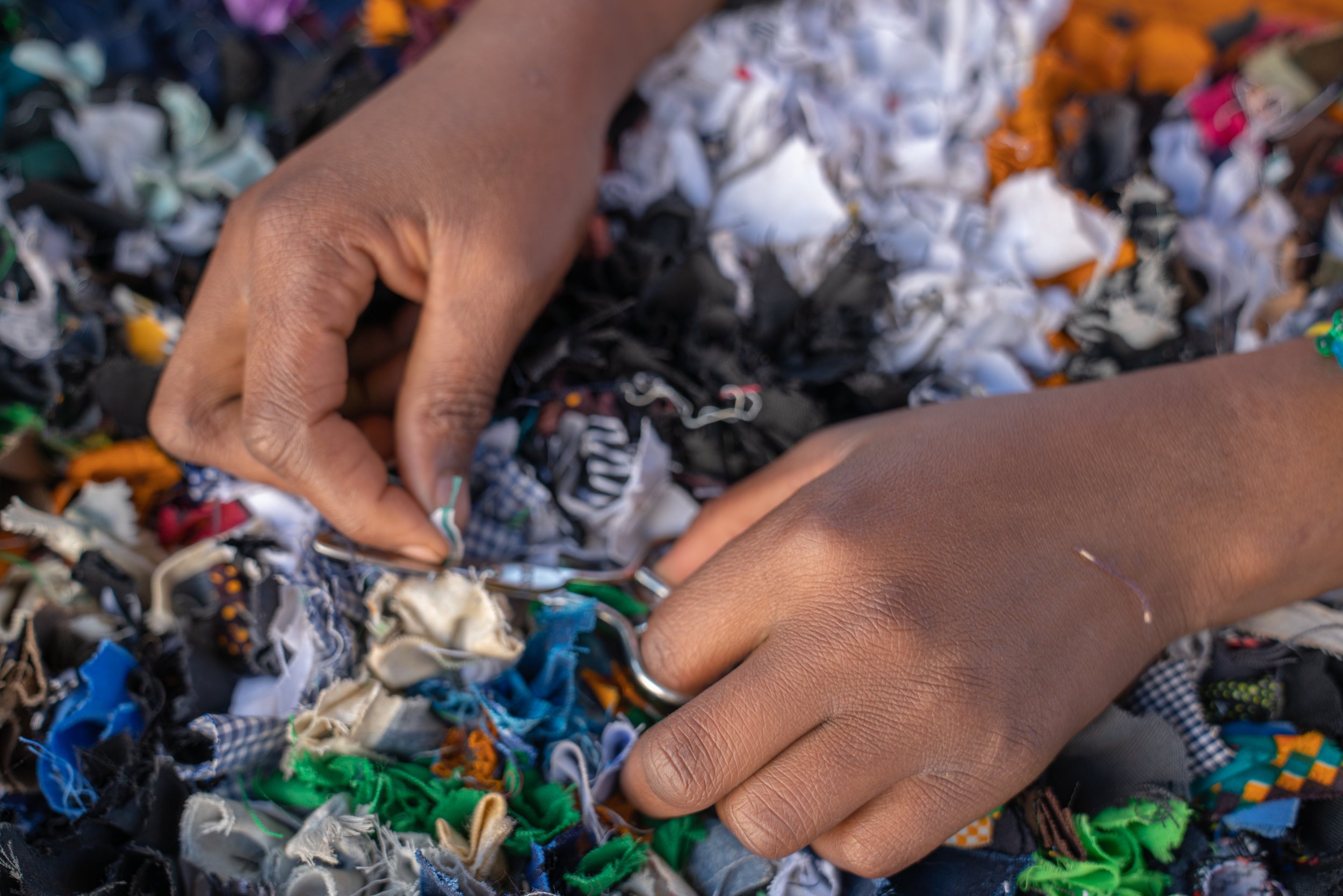
Zambia lies in one of the most incredible and diverse landscapes in the heart of Southern Africa, rich in “natural resources” and sharing borders with eight other countries. Zambia's colonization began in 1888 when the British South Africa Company began to exploit minerals in the region and it wasn’t until 1964 that Zambia achieved independence. However as a result of brutal colonialism and the introduction of a capitalist system that was not aligned with the culture and way of life, Zambia contends with widespread poverty, particularly in rural regions where essential services—like access to education—are lacking.
Art day with 14 students from New Hope Waves School attending WayiWayi Art Gallery and Studio in Livingstone, Zambia. They painted and created bead bracelets during the morning session with artist and teacher Yande Yombwe teaching how to use a paint brush.
While progress has been made in enhancing access to education in Zambia, challenges persist due to entrenched cultural norms and economic difficulties particularly in rural areas that have set in since colonialism and capitalism took root over the local, Indigenous ways of being. However, comprehensive efforts from the government, international organisations, NGOs and communities are seeking to change this narrative while addressing not only economic factors but also education, healthcare and overall socioeconomic infrastructure improvement.
With the challenges of a capitalist system come challenges of poverty in regions where wealth is not equally distributed. Child marriage—though illegal—persists, with teenage girls surrendering to unions before they turn 18. In addition, opportunities for education and employment are scarce, leaving countless families to navigate life without a lifeline of income.
Left: teacher Dennis Sianyama. Right: teacher Masonali Lukumba .Original founders of New Hope Waves Organization in Livingstone. Middle: Director of New Hope Waves, Auldridge Chibbwalu.
“The benefit of the team is that players are improving their living conditions by looking after their well being in a healthy manner.”
In the very midst of this endeavour, Auldridge Chibbwalu, Masonali Lukumba and Dennis Sianyam—bound by their shared love for football—found themselves disheartened witnesses to the absence of hope within the walls of their community in Livingstone.
Undeterred by the daunting challenges, these three friends recognized the need for change, and began planting the seeds of hope: The New Hope Waves Organization which came to life with their aptly named football team, New Hope Waves.
Lentilisha Muleya (mother) and Reymond Muleya grade 7 student New Hope Waves School. Their home is located 10 km from the school in a building construction site in township of Ngwenya, Zambia. Reymond attends school 5 days a week walking approximately 2 hours each way every day.
This initiative served as a portal, as through the pull of the game, connections were forged that enabled to inspire and guide children and youth towards local schools, breathing life into educational opportunities.
“The benefit of the team is that players are improving their living conditions because they are looking after their well being in a healthy manner,” shared Aubrey Ngosa, one of the coaches of the New Hope Waves Football team. “They are off the streets and making connections with each other in a caring manner and now have more social skills and healthier attitudes. Some of the players have even returned to school.“
Since most of the players come from challenging backgrounds, many of them found solace and purpose within the embrace of the team, undergoing an inner transformative journey in a socially rich environment. The team environment fosters a heightened awareness of well-being and health amongst the players, while the disciplined routine of five days of training—coupled with the exhilaration of weekly games, became a powerful antidote against the perils of substance abuse and other illicit vices.
“Our hopes and dreams are for our children to stay in school to become somebody responsible,” explained Regina and Masiye, parents to one of the students. “It’s up to them to decide what they want in life but the school will guide them forward.”
Teacher Masonali Lukumba marking papers for primary level students at New Hope Waves School in Livingstone, Zambia. Outdoor space is used everyday to accommodate the overflow of students attending the school.
In 2019, Auldridge Chibbwalu, Director of New Hope Waves, initiated a tuition-free school program for the youth in the vulnerable communities surrounding Livingstone and in December 2021, the initiation of the Women’s Empowerment Program marked a significant step towards fostering positive change. “There is now a Current of New Hope,” he says.
Recognizing the financial struggles faced by numerous families, Auldridge and his team embarked on a mission to provide education to those who could not afford government or private schooling. The response was swift, with New Hope Waves School quickly reaching full capacity, currently accommodating around 150 students spanning primary to grade 7 classes.
“It’s up to them to decide what they want in life but the school will guide them forward.”
Presently, the school is managed by three permanent teachers and two dedicated volunteers as the burgeoning student population necessitates a division of the school day into morning and afternoon sessions, with some classes conducted outdoors to accommodate the overflow.
Teacher Masonali Lukumba teaches primary to grade 7 outdoors at New Hope Waves School in Livingstone.
Despite its noble endeavours, this grassroots and non-profit organisation faces several challenges that impede its mission. Currently, New Hopes Waves heavily relies on donations, resulting in limited funds for essential sports equipment and transportation to and from games, and the organisation also struggles to provide the necessary resources for unforeseen circumstances, such as injuries, and lacking provisions for first aid or transportation to the nearest clinic.
New Hope Waves Football team player in training before Divisional game in Livingstone, Zambia.
Compounding these challenges, some players embark on a demanding journey of approximately 25 kilometres round trip each day, commuting between school, training, and home. This arduous routine exacerbates the difficulty of maintaining competitiveness, especially since some players sustain themselves on just one small meal per day.
Yet despite these formidable challenges, New Hope Waves has persevered. The resilience, courage, and determination of the youth are evident as they actively participate in football and attend school with a genuine desire to learn while achieving significant literacy milestones, passing Zambian term exams and progressing to higher grades while forming strong connections with their peers and embracing empowerment.
New Hope Waves continues to inspire positive change in the face of adversity and a current of new hope is now palpable, echoing the sentiments of Auldridge Chibbwalu.
To learn more about New Hopes Waves visit their website.






